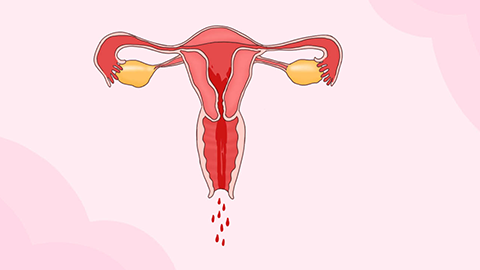What does it mean when menstrual blood is thin and looks like bloody water?
Menstrual blood that is thin and watery may be caused by emotional fluctuations, excessive dieting, endocrine disorders, endometritis, or pelvic inflammatory disease. Symptoms can be improved through psychological adjustment, nutritional supplementation, and medication. If symptoms persist or are accompanied by abdominal pain or irregular menstruation, prompt medical attention is necessary.
1. Emotional fluctuations: Prolonged anxiety and stress can affect hormone secretion, leading to scanty and thin menstrual flow, possibly with early or delayed periods. It is recommended to adjust your mindset, relieve stress through exercise and talking with others, and maintain a regular sleep schedule to stabilize the endocrine system.
2. Excessive dieting: Intentional weight loss leading to inadequate nutrition can impair endometrial growth, resulting in thin, low-volume menstrual blood, often accompanied by fatigue and pallor. It is advised to resume normal eating habits, increase intake of protein, iron, and vitamins, and avoid extreme dieting.

3. Endocrine disorders: Insufficient estrogen secretion leads to a thin endometrium, causing thin and light menstrual flow, along with menstrual irregularities and worsening skin condition. Under medical guidance, medications such as estradiol valerate tablets, progesterone capsules, or drospirenone-ethinyl estradiol tablets may be used to improve symptoms.
4. Endometritis: Bacterial infection causes inflammation of the endometrium, affecting its shedding, resulting in thin menstrual blood that may have an odor, along with lower abdominal pain. Under medical supervision, medications such as metronidazole tablets, cefixime dispersible tablets, or Gynecological Qianjin tablets may be used to alleviate symptoms.
5. Pelvic inflammatory disease: Bacterial infection in the pelvic cavity causes inflammation, interfering with menstrual discharge and leading to thin menstrual blood, accompanied by lower back pain and increased vaginal discharge. Follow medical advice to use medications such as levofloxacin hydrochloride capsules, azithromycin dispersible tablets, or Jingangteng capsules to improve symptoms.
Daily care includes maintaining external genital hygiene, changing underwear regularly, avoiding cold exposure during menstruation, eating a balanced diet rich in nutrients, maintaining regular sleep patterns without staying up late, and engaging in moderate exercise to strengthen overall health.




